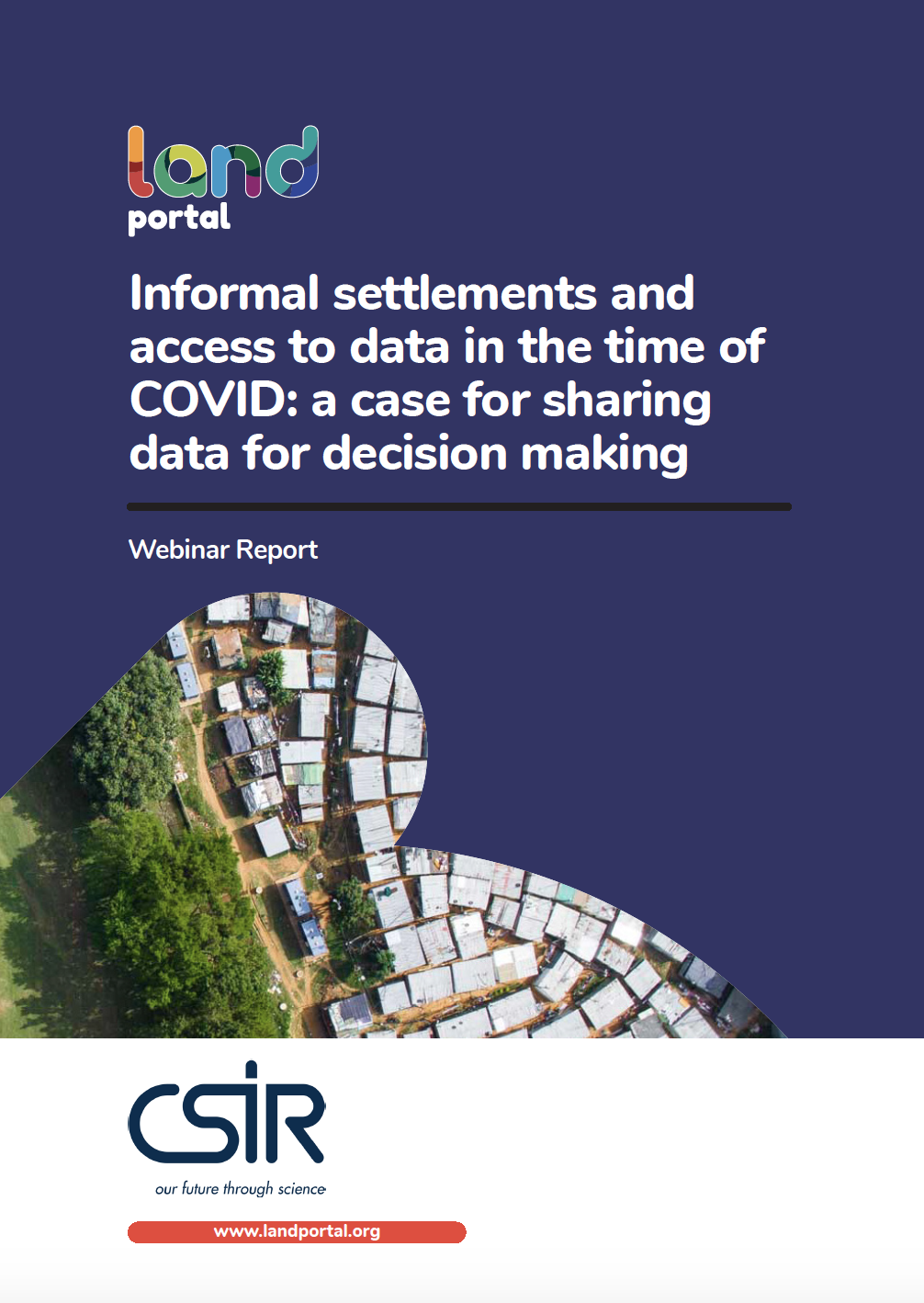Resource information
The spread of COVID-19 in South Africa and other countries in the region has again brought to the fore the fact that very dense, under-serviced, mostly informal, settlements are not healthy places to live. They are also places where the spread of a disease is difficult to prevent or manage.
The kind of emergency response that was required to address the imminent spread of COVID-19 highlighted the widespread vulnerability of the poorest, compounded by highly unequal access to services and ongoing unhealthy living conditions.
Despite the existence of a great deal of data about formal and informal human settlements in the country, over the last few months during the epidemic when it has come down to directing the disaster response based on usable information, and then prioritizing the follow-up responses around addressing conditions in informal settlements, the challenge of identifying up-to-date data about informal and rural settlements that is coupled with data about the people living in such settlements has proven elusive.
This has highlighted the real need for institutional coordination and data sharing across state and non-state actors, many of whom have reasonably current data. This data, however, exists in pockets, is often protected, or is not available in sharable, geo-referenced formats.
This webinar reflected on the challenges of accessing data and information to aid a comprehensive understanding of informal settlements in time of crisis or disaster. It will also considered the value and relevance of the findings of the ‘State of Land Information in South Africa’ report.
Moderators:
- Mark Napier, Principal Researcher, CSIR
- Mike Powell, Independent consultant focusing on establishing effective intermediaries between technology developers and ICT users in the development sector
Panelists:
- Alize le Roux, Senior Researcher, CSIR
- Mirjam van Donk, Director, Isandla Institute
- Ahmed Vawda, Former Deputy Director General of Human Settlement Delivery Frameworks For the Republic of South Africa
A complete recording of the webinar is available on YouTube: https://youtu.be/7yalqkwQiqM

